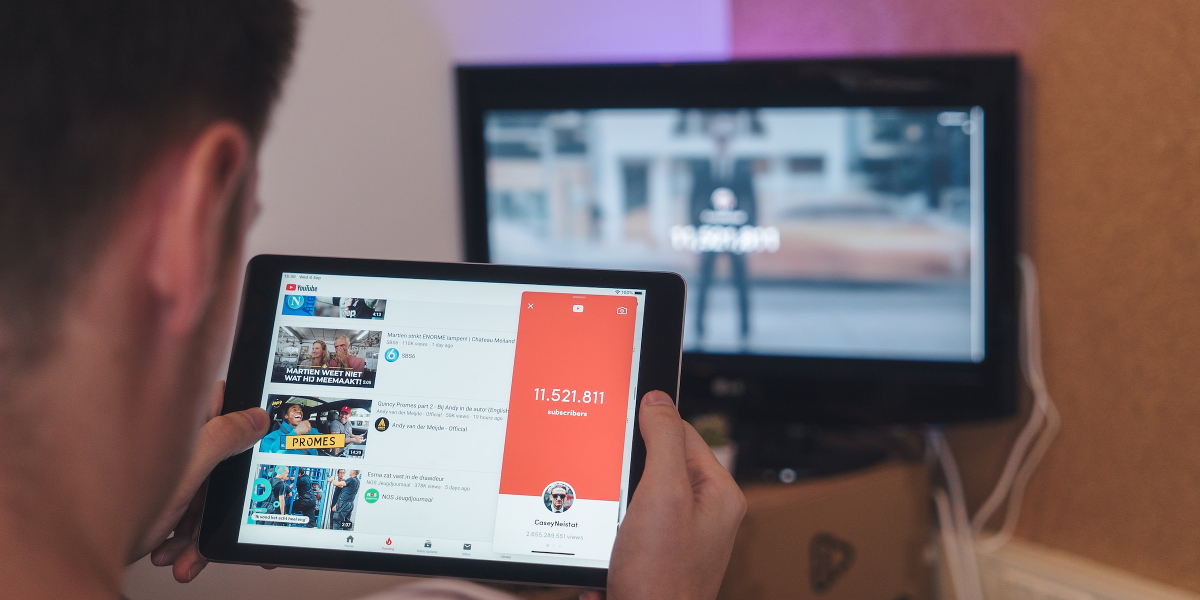The UK’s culture secretary Nadine Dorries has confirmed the government’s plans to privatise Channel 4, in the face of strong criticism from the broadcast and advertising industries.
Dorries took to Twitter on Monday to argue that government ownership impedes the broadcaster from competing against streaming giants and that new ownership “will give Channel 4 the tools and freedom to flourish and thrive as a public service broadcaster long into the future.” She added that proceeds of the sale would be reinvested in “levelling up the creative sector.” The government aims to complete a deal before the 2024 general election, ending 40 years of public ownership for Channel 4.
The sell-off is expected to raise around £1 billion, with rumoured buyers including ITV, Sky and Discovery. As such, the news has sparked concerns about the potential impact of the sale on competition in the UK’s TV ad market.
“Undue dominance”
Privatisation of the ad-funded public service broadcaster has been met by resistance from senior Conservative MPs including Karen Bradley and Damian Green, prominent broadcasters such as Jon Snow and Sir David Attenborough, and advertising industry bodies ISBA, the IPA and the Advertising Association. While broadcasters expressed concern for the channel’s public service remit, the advertising industry focused on the potential threat to market competition.
In a statement released this morning, ISBA said it was “very disappointed” in the government’s decision . The industry body warned of the “undue dominance” a consolidated business could assert over the TV advertising market, squeezing out competition from its smaller members. “At present, there are three TV sales houses – owned by Channel 4, ITV, and Sky – involved in the buying and selling of advertising space,” ISBA noted. “For the market to be effective for both advertisers and consumers there needs to be competition.”
In a report published last year, Enders Analysis also considered the formation of a larger broadcasting group: “A combination of ITV and Channel 4 would consolidate almost half of all advertising watched on television and over 70 percent of revenue, which would leave Channel 5/ViacomCBS, Sky and STV dwarfed in the ad market.” The analysis did however note advantages for the advertising ecology, “as certainty will be needed for pivot points such as PSB licence renewal, prominence and potential gambling/HFSS TV advertising bans to affect a sale.”
“Irreparable damage”
Calling for “a much-needed wider review of the UK video industry”, WPP’s media arm GroupM described the importance of a “level playing field” across the entire sector, not solely focused on TV. “It’s critical that Channel 4’s role as a public service broadcaster is wholly protected, including its approach to creativity and social responsibility,” said Simon Willis, chief investment officer at GroupM. He stressed the value of the channel’s diverse programming that “gives unique talent a much-needed platform and shop window for their craft.”
If that content model is threatened, analysts forecast negative consequences for the channel and its advertisers. “The broadcaster’s distinct output and ability to reach younger audiences is valued by audiences and advertisers,” argues Neil Anderson, analyst at Ampere Analysis. “Changing Channel 4’s content strategy could put the broadcasters viewing share and advertising revenue at risk.” He added that the channel’s ad revenues “are unlikely to grow under privatisation.”
What does seem likely is the relaxation of the broadcaster’s public service remit, as any £1 billion buyer would be looking develop in-house production and improve margins, according to Ampere’s research. Those commercial demands could result in declining diversity, innovation and factual programming, as well as the closure of some 50-60 independent production companies that rely on the broadcaster’s business.
“Taking C4 in a commercial direction, prioritising profit over public value, would undermine Channel 4’s purpose as an alternative public service broadcaster and reduce programming choice for UK audiences,” concluded Ampere. “Privatisation would ultimately result in irreparable damage to the UK’s thriving TV production sector.”
“Cultural vandalism”
The government first touted privatisation after the 2019 election campaign, launching a public consultation into a possible change in ownership in July 2021 that yielded 60,000 submissions. A statement by Channel 4 implied these had largely been ignored: “It is disappointing that today’s announcement has been made without formally recognising the significant public interest concerns which have been raised.”
Channel 4 claimed to have presented the Department for Digital, Culture, Media & Sport (DCMS) with an alternative plan to privatisation, having “engaged in good faith” with DCMS throughout the consultation period. Channel 4 CEO Alex Mahon told staff in an email: “That vision was rooted in continued public ownership and was built upon the huge amount of public value this model has delivered to date and the opportunity to deliver so much more in the future.”
The announcement came hours after the appointment of Sir Ian Cheshire as Channel 4 chair, seen by the government’s critics as stacking the decks against a broadcaster it views as hostile. Shadow Culture secretary Lucy Powell called the privatisation decision “cultural vandalism from a government that’s run out of ideas”, noting the likelihood of job losses; as many as 1,300, according to research by the broadcaster.




